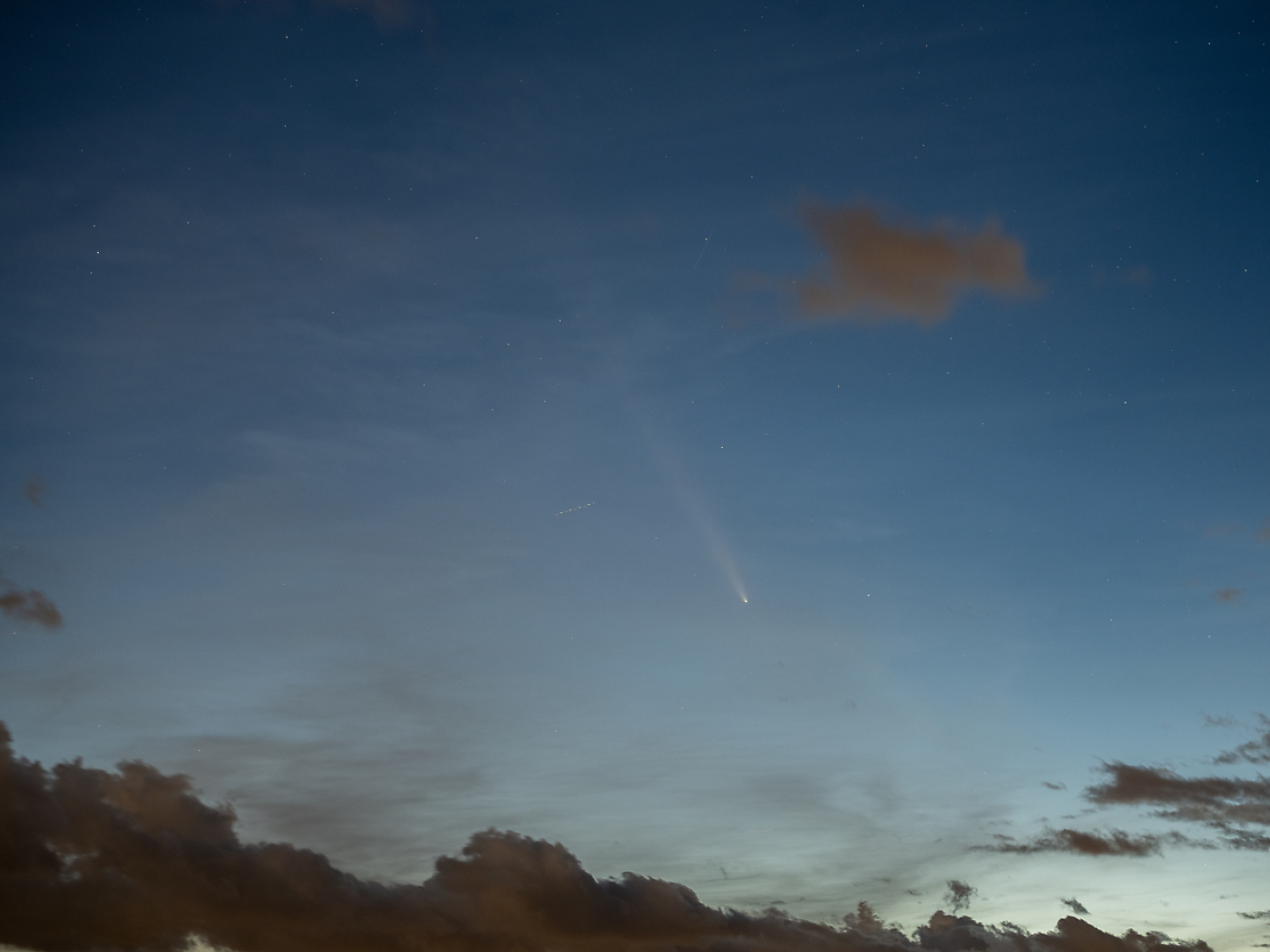
Brightest supermoon to shine over Switzerland on Thursday

An exceptional double celestial spectacle could be visible early Thursday evening in Switzerland, clouds permitting. A supermoon will rise in the east, while comet Tsuchinshan-Atlas continues its course across the western sky.
+ Get the most important news from Switzerland in your inbox
The full moon itself will be reached on Thursday at 1:26 pm. This supermoon will light up the sky for three days this week, from Wednesday to Friday.
Also known as the “hunter’s moon”, this full moon will be the biggest and brightest of 2024. A supermoon is around 7% larger and 14% brighter than a regular full moon.
The chances of seeing this spectacle are greatest in the Bernese Oberland, central, eastern and northeastern Switzerland. At the start of the night, cloud cover will still be incomplete in these regions, explained Marco Stoll of the Swiss Federal Office of Meteorology and Climatology (MeteoSwiss) to news agency Keystone-ATS.
In the course of the evening, clouds will invade the sky from the west. This is why the chances of seeing the comet and the newborn full moon immediately after sunset will be the best.
Still close to the Sun
Comet Tsuchinshan-Atlas is still close to the Sun. However, visibility is likely to be hampered by the light of the rising full moon.
Tsuchinshan-Atlas was discovered in early 2023. It owes its name to the Chinese and South African telescopes that first spotted it. It is one of the non-periodic comets that only return to the vicinity of the Earth after long periods, if at all.
It will be a little higher in the sky every day. But each day, it will fade in brightness as it moves further away from the Sun. Barring any obstacles in its path, Tsuchinshan-Atlas follows an orbit that is not expected to bring it closer to the Earth for another 80,000 years.
The comet probably originated in the Oort cloud, a hypothetical, gigantic assembly of tiny planets and celestial bodies at the very edge of the solar system.
Translated from French by DeepL/jdp
This news story has been written and carefully fact-checked by an external editorial team. At SWI swissinfo.ch we select the most relevant news for an international audience and use automatic translation tools such as DeepL to translate it into English. Providing you with automatically translated news gives us the time to write more in-depth articles.
If you want to know more about how we work, have a look here, if you want to learn more about how we use technology, click here, and if you have feedback on this news story please write to english@swissinfo.ch.

In compliance with the JTI standards
More: SWI swissinfo.ch certified by the Journalism Trust Initiative




























You can find an overview of ongoing debates with our journalists here . Please join us!
If you want to start a conversation about a topic raised in this article or want to report factual errors, email us at english@swissinfo.ch.